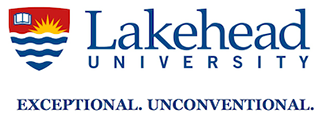Hi all,
I’m looking for some peer evaluation guidance.
I use peer evaluations to adjust students’ averages across the team quizzes. I use the Fink Method to conduct this adjustment. This is where the ratio of the student’s average peer evaluation score and the team’s average peer evaluation score is multiplied against their average across the team quizzes.
This works great, except in cases where there is one team member that gets a peer evaluation score that’s much, much lower than their teammates. This pulls down the team average and results in the person with the low evaluation taking a big hit on their team quiz score while the other team members get a big boost (sometimes adjusting their team quiz scores well above 100%).
To deal with this I’ve thought of treating the team member with the really low evaluation as an outlier, removing their score from the adjustment calculations, and just applying a set deduction to their team quiz average. The challenges with this approach are:Has anyone else dealt with this issue? Any suggestions or thoughts? I’m all ears!
- What criteria do I use to identify outliers? How much lower do their peer evaluation scores have to be from those of their teammates?
- How much of a set deduction should I apply?
Thanks,
John--Associate Professor & Graduate CoordinatorSchool of Kinesiology
Lakehead University
955 Oliver Rd.
Thunder Bay, Ontario P7B 5E1
Canada
phone: 807 343-8010 ext 7952Lakehead University resides on the traditional territory of the Fort William First Nation and the Ojibwe, Odawa, and Pottawatomi nations, collectively known as the Three Fires Confederacy. I am grateful for the opportunity to base my work out of that territory.Are you ok? Our How to ask for Help at Lakehead guide was made for you.Need to talk to someone right now? Good 2 Talk is a free, confidential 24/7 post-secondary student helpline. Call 1-866-925-5454 or text GOOD2TALKON to 686868.
To unsubscribe from the TEAMLEARNING-L list, please click here.
Further information about the UBC Mailing Lists service can be found on the UBC IT website.
